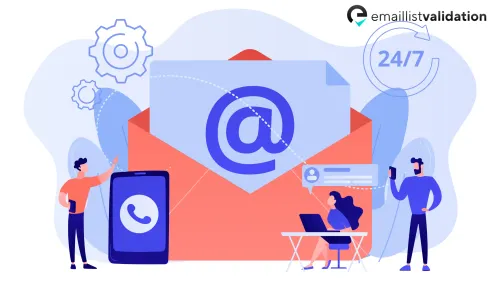As an expert on the topic of email verification, I understand the importance of ensuring that an email address is real before sending any important communications. In this article, I will discuss the various methods available for verifying email addresses and provide answers to frequently asked questions about the topic.
Why is Email Verification Important?

Before delving into the methods for verifying email addresses, it's important to understand why this step is necessary. Sending emails to fake or non-existent addresses can lead to a number of negative consequences, including:
- Lower email deliverability rates
- Increased chances of being marked as spam
- Damage to sender reputation
- Waste of time and resources
By verifying email addresses, you can ensure that your communications are reaching real people who are likely to engage with your content. This can lead to higher conversion rates and a more effective email marketing campaign overall.
Methods for Verifying Email Addresses

There are several methods available for verifying email addresses, including:
- Email verification services
- Manual verification
- Email validation APIs
- Domain verification
Email Verification Services
Email verification services, such as Email Checker and Verifalia, use algorithms to check the validity of email addresses. These services can provide a list of valid, invalid, and unknown email addresses, as well as additional information about the email address, such as the domain and email provider.
Manual Verification
Manual verification involves sending an email to the address and waiting for a response. If the email bounces back or the response indicates that the email address is invalid, then the address is not real. However, this method can be time-consuming and may not be practical for large email lists.
Email Validation APIs
Email validation APIs, such as the one offered by Wiza, provide developers with a way to validate email addresses in real-time. These APIs can be integrated into websites and applications, allowing for automatic email verification as users sign up or submit forms.
Domain Verification
Domain verification involves checking the domain associated with the email address to ensure that it is valid. This method is useful for detecting fake email addresses that may be used for phishing scams or other malicious purposes.
Frequently Asked Questions
What is the best method for verifying email addresses?
The best method for verifying email addresses will depend on your specific needs and resources. Email verification services are a quick and easy option, but may not be practical for large email lists. Manual verification can be time-consuming but is a good option for smaller lists. Email validation APIs are a great option for developers who want to automate the process of email verification. Domain verification can be useful for detecting fake email addresses.
How accurate are email verification services?
Email verification services are generally quite accurate, but may not catch every invalid email address. It's important to use multiple verification methods to ensure that your email list is as accurate as possible.
How often should I verify my email list?
It's a good idea to verify your email list regularly, especially if you are sending a large number of emails. Depending on your needs, you may want to verify your list every 3-6 months to ensure that it is up-to-date.
Can email verification prevent my emails from being marked as spam?
Email verification can help increase the deliverability rate of your emails, which can reduce the chances of them being marked as spam. However, there are many other factors that can affect whether or not your emails are marked as spam, such as the content of the email and the sender's reputation.
Is it legal to verify email addresses?
Yes, it is legal to verify email addresses as long as you are not violating any anti-spam laws or infringing on people's privacy rights. It's important to ensure that you have permission to send emails to the addresses you are verifying and that you are complying with all relevant laws and regulations.



